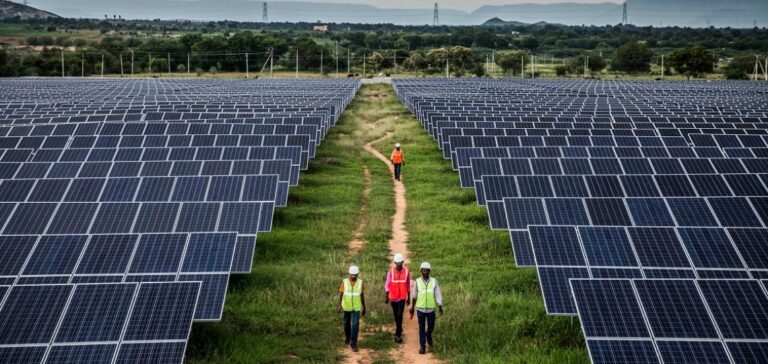On February 10, 2025, the Watt For Change Foundation and the French Development Agency (AFD) signed a partnership agreement to fund initiatives that improve access to renewable energy in three African countries. This three-year program, named SCALE UP, allocates a budget of €860,000 to support local associations in implementing energy solutions tailored to the needs of rural populations.
A structured and targeted financing approach
The SCALE UP program is based on financial and technical support for the three selected associations. Each organization will receive €150,000 over three years, along with technical assistance to strengthen their skills in impact measurement, reporting, and fundraising.
The AQAFI association, active in Mauritania, plans to install solar-powered pumps to supply water to 45 hectares of agricultural land, ensuring access to irrigation for local farmers. In Madagascar, CODEGAZ will set up 81 biodigesters to produce biogas and biofertilizers for agricultural use. In Benin, INTI is developing an improved cookstove industry using biofuels, while also structuring a distribution network for solar-dried food products.
A public-private commitment to rural electrification
The Watt For Change Foundation, created in 2024 by the VALOREM endowment fund, positions itself as a key player in funding energy projects with a social dimension. Its partnership with AFD reflects a commitment to combining public and private resources to address energy access challenges in Africa.
According to Stéphanie Lanfranchi, Director of the Mobilization and National Partnerships Department at AFD, this initiative aims to provide solutions adapted to local communities while generating tangible economic and social impacts. The implementation of energy solutions improves working conditions and fosters income-generating activities in rural areas.
Future prospects for the program
Beyond the initial funding, SCALE UP aims to create sustainable models for its partner associations. The technical support includes training beneficiaries in equipment maintenance, ongoing project monitoring, and active fundraising to ensure long-term viability.
Rural electrification remains a major challenge in several African regions, and locally adapted solutions can maximize efficiency. Through this collaboration, AFD and Watt For Change are supporting decentralized energy infrastructure while enabling the development of associated economic activities.






















